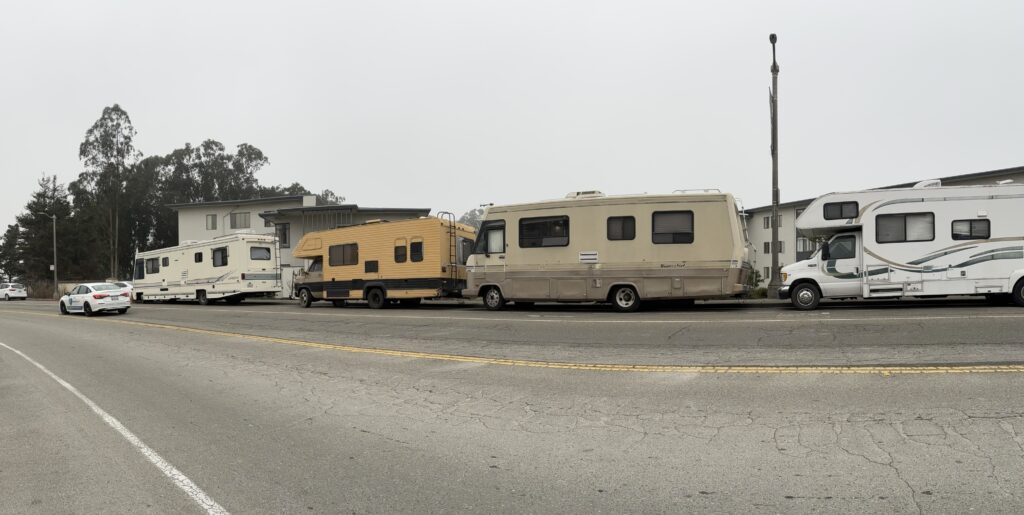by Madeleine Matz
In late March, Armando Martinez and other RV residents who had been living outside of Bernal Heights Park were forced to move when a long-dormant parking ban went into effect. The group splintered, with Martinez, Darwin Pena and a Yucatecan couple together relocating first to the Mission, then to the Bayview and finally to the Excelsior District.
The moves have taken a toll.
Martinez told Street Sheet that shortly after arriving in the Excelsior, he was parked near McLaren Park when a man whom he believed was drunk approached Pena, who was parked across the street. Martinez heard yelling, and rushed to the two men. The presumably housed man, who was older and white, was brandishing a knife. Pena grabbed a baseball bat. Using racial slurs, the housed man told Martinez and Pena that the neighborhood was a million-dollar neighborhood and ordered them to get out. Another neighbor, whom Martinez believed may have been the man’s son, intervened, and told Martinez and Pena they had 20 minutes to leave. They relocated.
Such experiences of violence or near-violence have been a constant for Martinez, who reported that his RV tires were slashed when he was parked in the Mission and that housed people everywhere he goes seem enraged by his very presence.
“I still don’t know what it is about RVs that makes people so upset, but it hasn’t changed,” Martinez said. “These guys are angry. Angry, elderly, white suburban men. We’ve gotten used to it. We don’t take it as seriously as we used to. It isn’t just us. It is the whole country.”
The San Francisco Department of Homelessness and Supportive Housing (HSH) has intermittently established contact with Martinez and his small community. While parked in the Bayview, Martinez said he and his friends were offered three spots in the Candlestick safe camping site. They accepted the spots, but a few days later, they were then told that only two would be available. Martinez said he felt that HSH would “promise the world” and then often forget about him, unable to follow through on the fast-tracked housing or other services he was offered.
Martinez said that HSH offered an apartment subsidy, but he does not want to leave his community. He feels that the other RV residents, many of whom have limited English, are not taken seriously without him. He won’t go inside until they, too, have an opportunity to stop the endless cycle of moving their homes.
Police officers have been a more consistent presence than HSH, forcing Martinez, Pena and the Yucatecan couple to repeatedly move their RVs. Martinez described that the RV residents were effectively “pushed around” the city, kept moving by threats from housed residents and police. There have been moments of mercy–a parking enforcement agent who left a blank ticket on his dashboard, park rangers who explained where he could and could not park with empathy and understanding.
Through it all, Martinez has maintained a sense of community, both with the other RV residents who once camped with him in Bernal Heights and with the conventionally housed Bernal residents who supported him when he lived there.
Martinez is hopeful that Pena and the Yucatecan couple will get spots in the Candlestick safe camping site. Only then, he said, will he go inside.


